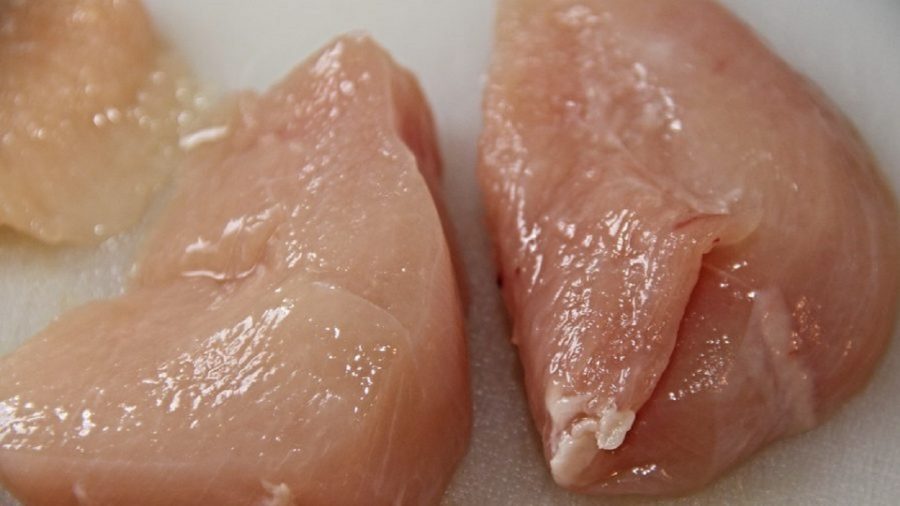The Centers for Disease Control and Prevention (CDC) has issued a new warning about chickens after an outbreak of salmonella.
The federal agency said that 52 people have been infected with salmonella across 21 states. Five of those people were hospitalized; no one has died as of yet.
“Epidemiologic and laboratory evidence indicate that contact with backyard poultry (such as chicks and ducklings) from multiple hatcheries is the likely source of these outbreaks,” the CDC stated.
It then warned people, “Don’t kiss backyard poultry or snuggle them and then touch your face or mouth.”
Salmonella outbreaks: 52 people sick in 21 states. These illnesses have been linked to contact with chickens and ducklings in backyard flocks. https://t.co/syVJh03Kq0 pic.twitter.com/CvgCDlqJA8
— CDC (@CDCgov) May 16, 2019
It also said that people should not let chickens into the house and that people should “set aside a pair of shoes to wear while taking care of poultry and keep those shoes outside of the house.”
Children younger than 5, adults over 65, and people with weakened immune systems should never handle or touch chicks, ducklings, or other poultry, the agency stated.
The warning came about a month after the Centers said that people should not wash raw chicken.
“During washing, chicken juices can spread in the kitchen and contaminate other foods, utensils, and countertops,” the CDC stated.
Don’t wash your raw chicken! Washing can spread germs from the chicken to other food or utensils in the kitchen. https://t.co/QlFpd1alG3 pic.twitter.com/bLB1ofcuh7
— CDC (@CDCgov) April 26, 2019
It also said that people should put chicken in a plastic bag before putting it in a shopping cart or refrigerator, use a separate cutting board for raw chicken, and never put cooked food or fresh produce on a surface that held raw chicken.
“Americans eat more chicken every year than any other meat. Chicken can be a nutritious choice, but raw chicken is often contaminated with Campylobacter bacteria and sometimes with Salmonella and Clostridium perfringens bacteria. If you eat undercooked chicken or other foods or beverages contaminated by raw chicken or its juices, you can get a foodborne illness, which is also called food poisoning. That’s why it’s important to take special care when handling and preparing chicken,” it stated.
The guidance to not wash raw chicken triggered a backlash, with some people saying the recommendation seemed wrong.
Reacting to the criticism, the agency added: “We didn’t mean to get you all hot about not washing your chicken! But it’s true: kill germs by cooking chicken thoroughly, not washing it. You shouldn’t wash any poultry, meat, or eggs before cooking. They can all spread germs around your kitchen. Don’t wing food safety!”
We didn’t mean to get you all hot about not washing your chicken! But it’s true: kill germs by cooking chicken thoroughly, not washing it. You shouldn’t wash any poultry, meat, or eggs before cooking. They can all spread germs around your kitchen. Don’t wing food safety!
— CDC (@CDCgov) April 29, 2019
Symptoms of Salmonella
Salmonella symptoms typically include diarrhea, fever, and stomach cramps. The symptoms usually appear between 12 and 72 hours after a person is exposed to the bacteria and the illness usually lasts four to seven days.
Treatment isn’t necessary for most people but if symptoms are severe people should go to their local hospital for antibiotics. Salmonella can be deadly in rare cases, especially for young children, older people, and people with weakened immune systems.
Salmonella causes about 1.2 million illnesses, 23,000 hospitalizations, and 450 deaths in the United States every year, according to the CDC.
Food is the source for about 1 million illnesses, 19,000 hospitalizations, and 380 deaths.


